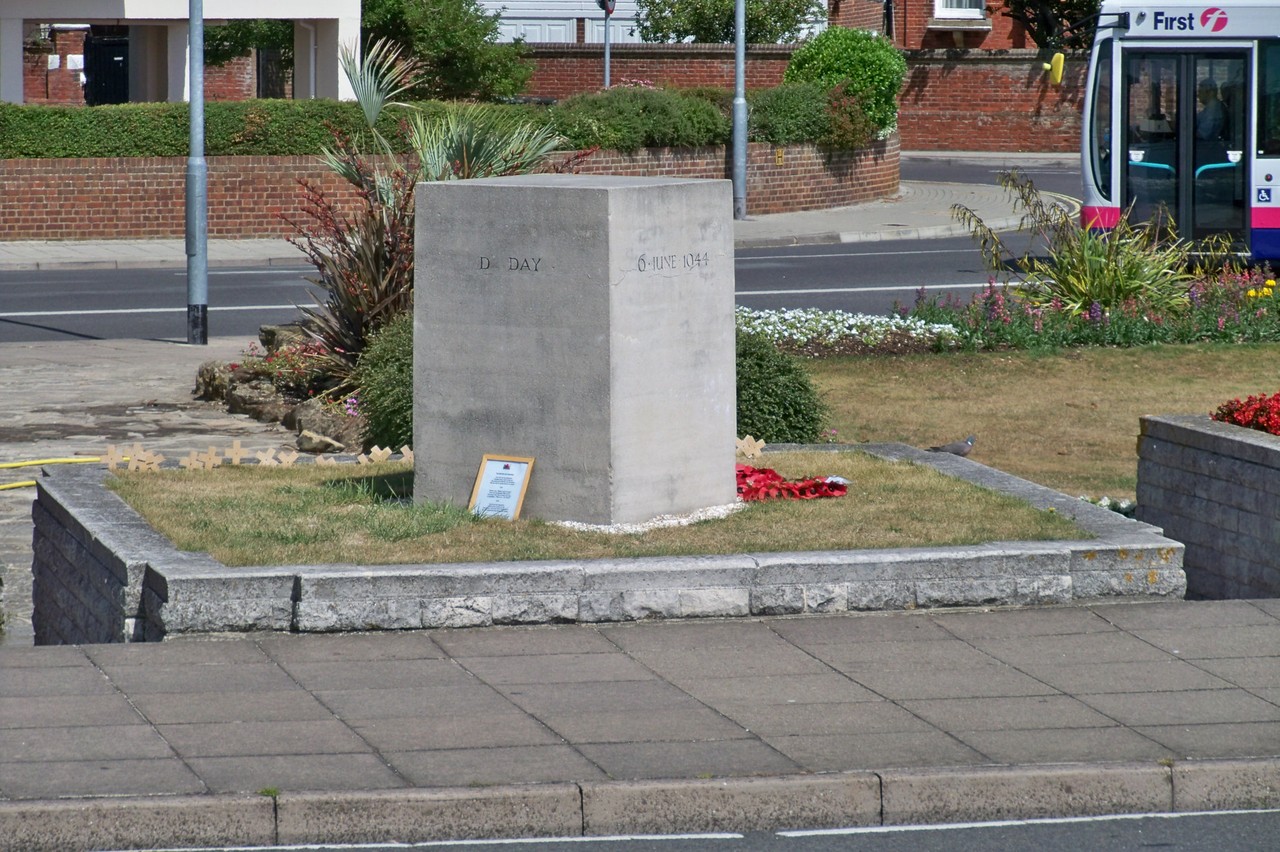The commemorative stone in Southsea was unveiled in June 1948, exactly four years after the Normandy landings took place. It was designed as a copy of the concrete blocks which were placed around the southeast coast of England as protection against invasion forces and bears the following inscription:
(Facing the sea)
“D-DAY 6 JUNE 1944.”
(Facing inland - left)
“1940
FRANCE AND THE LOW
COUNTRIES HAVING BEEN
OVERRUN WE LABOURED
ALONE TO OBSTRUCT
OUR COASTS WITH SUCH
BLOCKS AS THIS AGAINST
INVASION BY THE
ENEMIES OF FREEDOM”
(Facing inland - right)
“1944
YET FROM THIS VERY
BEACH IN THE COMPANY
OF POWERFUL ALLIED
MANY THOUSANDS OF
OUR MEN EMBARKED ON
THE GREAT ADVENTURE OF
LIBERATING EUROPE AND
ACHIEVED THEIR OBJECTIVE.”
(Below in the wall)
“THIS MEMORIAL WAS UNVEILED BY
FIELD MARSHAL The Rt Hon the VISCOUNT
MONTGOMERY OF ALAMEIN K.G.,G.C.B.,D.S.O.
ON THE 6th JUNE 1948”
Its location opposite South Parade Pier is poignant in itself, as the pier was used as an embarkation point. The seafront area was closed off to civilians in 1943 and local residents close to the area had to show special passes to pass in and out. The pier had been requisitioned by the government, and parts of it were dismantled to build much larger platforms and scaffolding in order to load as many troops as possible onto the waiting craft. 27 men from Southsea were killed in Normandy during the landings and Battle of Normandy. The stone has been a site for numerous D-Day memorial services, included the one to mark the 75th anniversary in 2019, attended by Her Majesty the Queen, the prime minister and D-Day veterans.
